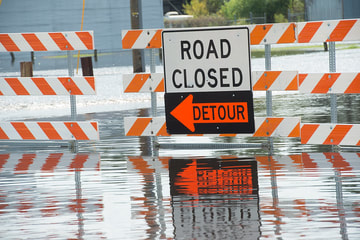
We’ve witnessed acts of courage, heroism and extensions of human kindness, but with such disaster, it’s hard to know what to say and do. Here are some ideas and thoughts on how to lend support following a natural disaster:
- Empathy goes a long way in responding to such a catastrophe and Zig Ziglar said it best: “You never know when a moment and a few sincere words can have an impact on a life.” When you interact with survivors, volunteers, or anyone impacted by the disaster, acknowledge the loss and share your sadness. People feel comforted knowing you care.
- Offer safe shelter. If you have room and know someone who has lost their home and has no place to go, sharing your space is a blessing. As reported on national news, a family whose home was intact invited strangers from a shelter to share their home. There are heartwarming stories of neighbors taking in neighbors and friends finding refuge with other friends. For more information on how you can open your home to those in need or how to help someone find emergency accommodations.
- Towels and clean clothing are in demand (but confirm before sending) as well as baby diapers and wipes. So many survivors left their homes with nothing but the clothing on their backs. There will be a long-term need for comfortable clothing and sundry items. Watch the news programs and the media to see what else will be needed in the coming days. Check your local newspapers or the local government websites to find ways to help or the Red Cross offers ways to donate and volunteer.
- Communicate your availability. There is a tremendous need for volunteers within these hard-hit communities. National Voluntary Organizations Active in Disasters has an extensive list with links to their national members who need volunteers and donations.
- One of the most expedient ways to help is by making a donation, but be wary of scams. The United States Government has a list on How to Help Survivors of Disaster. It’s safe to choose well-known national disaster relief organizations or use those recommended and listed on the websites of national news organizations or your local newspaper.
- What can you do on a more personal level? If you are interacting with survivors, listen; allow them to cry or talk. Sharing their story, often over and over again, is a way for them to begin to make sense of what has happened as well as working through the healing process. If a survivor asks you for specific help, do your best to fulfill their wishes.
- Don’t forget the children; they’ll need extra help in dealing with the aftermath of disasters. Tragic Times, Healing Words was originally prepared by Sesame Street Research for 9/11, but it offers relevant suggestions and guidelines for parents and caregivers on how to help children after a crisis.
Robbie Miller Kaplan is an author who writes from a unique perspective as a mother who has lost two children. She has written How to Say It When You Don't Know What to Say, a guide to help readers communicate effectively when those they care about experience loss, available in ebooks for "Illness & Death," "Suicide," "Miscarriage," "Death of a Child," "Death of a Stillborn or Newborn Baby," "Pet Loss," "Caregiver Responsibilities," "Divorce" and "Job Loss." All titles are in Amazon's Kindle Store.
 RSS Feed
RSS Feed
